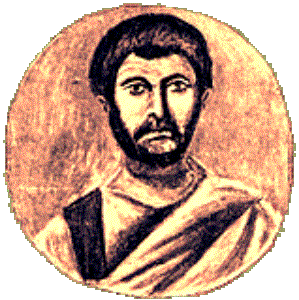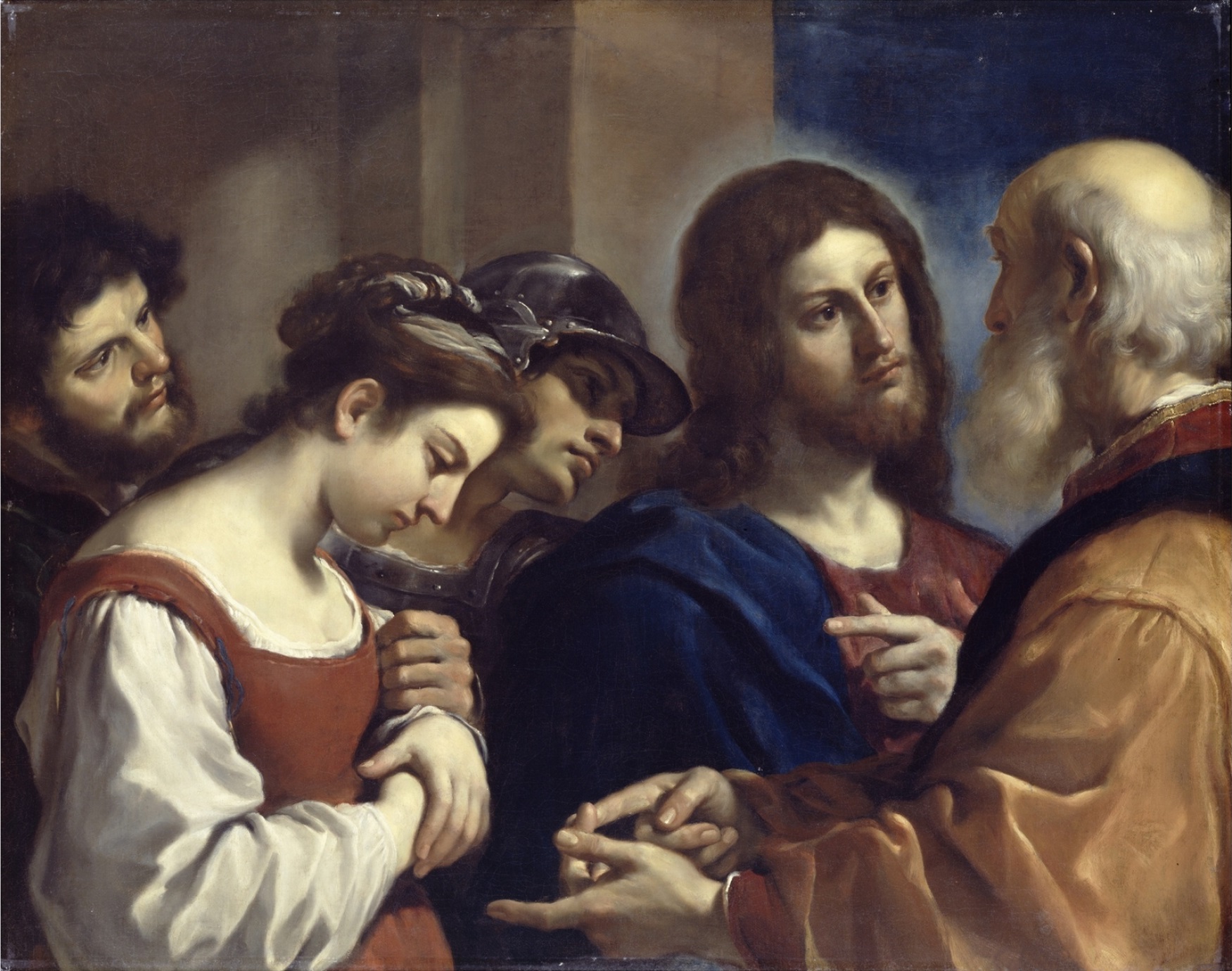|
Homo Sum, Humani Nihil A Me Alienum Puto
is a phrase in Latin that means 'I am man, nothing that is human is indifferent to me'. It is a phrase originating from Publius Terentius Afer aka Terence (), from his comedy ('The Self-Tormentor'), from the year 165 BC, where it is pronounced by the character Cremes to justify his meddling. Nevertheless, the quote has remained for posterity as a justification of what human behavior should be. The phrase is often linked with pride, yet it usually reflects humility and an acknowledgment of personal fallibility, much like the sayings "to err is human" and " let him who is without sin cast the first stone". Wolfson College's (Oxford) motto is a shortened version of the Latin phrase: . A shortened version of the line, , is used as the motto of various institutions, such as the Law Society of Scotland and the Australian Academy of the Humanities The Australian Academy of the Humanities was established by Royal Charter in 1969 to advance scholarship and public interest in the ... [...More Info...] [...Related Items...] OR: [Wikipedia] [Google] [Baidu] |
Latin
Latin ( or ) is a classical language belonging to the Italic languages, Italic branch of the Indo-European languages. Latin was originally spoken by the Latins (Italic tribe), Latins in Latium (now known as Lazio), the lower Tiber area around Rome, Italy. Through the expansion of the Roman Republic, it became the dominant language in the Italian Peninsula and subsequently throughout the Roman Empire. It has greatly influenced many languages, Latin influence in English, including English, having contributed List of Latin words with English derivatives, many words to the English lexicon, particularly after the Christianity in Anglo-Saxon England, Christianization of the Anglo-Saxons and the Norman Conquest. Latin Root (linguistics), roots appear frequently in the technical vocabulary used by fields such as theology, List of Latin and Greek words commonly used in systematic names, the sciences, List of medical roots, suffixes and prefixes, medicine, and List of Latin legal terms ... [...More Info...] [...Related Items...] OR: [Wikipedia] [Google] [Baidu] |
Terence
Publius Terentius Afer (; – ), better known in English as Terence (), was a playwright during the Roman Republic. He was the author of six Roman comedy, comedies based on Greek comedy, Greek originals by Menander or Apollodorus of Carystus. All six of Terence's plays survive complete and were originally produced between 166–160 BC. According to ancient authors, Terence was born in Carthage and was brought to Rome as a slave, where he gained an education and his freedom; around the age of 25, Terence is said to have made a voyage to the east in search of inspiration for his plays, where he died either of disease in Greece, or by shipwreck on the return voyage. However, Terence's traditional biography is often thought to consist of speculation by ancient scholars who lived too long after Terence to have access to reliable facts about his life. Terence's plays quickly became standard school texts. He ultimately secured a place as one of the four authors taught to all grammar p ... [...More Info...] [...Related Items...] OR: [Wikipedia] [Google] [Baidu] |
Heauton Timorumenos
''Heauton Timorumenos'' (, ''Heauton timōroumenos'', ''The Self-Tormentor'') is a play written in Latin by Terence (Latin: ''Publius Terentius Afer''), a dramatist of the Roman Republic, in 163 BC; it was translated wholly or in part from an earlier Greek play by Menander. The play concerns two neighbours, Chremes and Menedemus, whose sons Clitipho and Clinia are in love with different girls, Bacchis and Antiphila. By a series of deceptions, Chremes' wily slave Syrus dupes Chremes into paying money owed to Bacchis, who is a prostitute. The other girl, Antiphila, is discovered to be Chremes' own daughter, whom he promises in marriage to Clinia. In his edition, A. J. Brothers calls this "the most neglected of the dramatist's six comedies". He adds: "Yet the ''Self-Tormentor'', for all its occasional imperfections, in many ways shows Terence at his best; the plot is ingenious, complex, fast-moving, and extremely skilfully constructed, its characters are excellently drawn, and the wh ... [...More Info...] [...Related Items...] OR: [Wikipedia] [Google] [Baidu] |
165 BC
__NOTOC__ Year 165 BC was a year of the pre-Julian Roman calendar. At the time it was known as the Year of the Consulship of Torquatus and Octavius (or, less frequently, year 589 ''Ab urbe condita''). The denomination 165 BC for this year has been used since the early medieval period, when the Anno Domini calendar era became the prevalent method in Europe for naming years. Events By place Seleucid Empire * Artaxias I, king of Armenia, is taken captive by the Seleucid king Antiochus IV Epiphanes when he attacks Armenia. Artaxias is forced to recognize Antiochus IV's suzerainty over Armenia before he is released. Roman Republic * The Roman playwright Terence's play ''Hecyra'' (''The Mother-in-Law'') is first performed. Births * Sima Tan, Chinese astrologist and historian (approximate date) Deaths * Mattathias, Jewish leader of the Maccabees * Phraates I, king of Parthia (Arsacid dynasty The Parthian Empire (), also known as the Arsacid Empire (), was a major ... [...More Info...] [...Related Items...] OR: [Wikipedia] [Google] [Baidu] |
Human Behavior
Human behavior is the potential and expressed capacity (Energy (psychological), mentally, Physical activity, physically, and Social action, socially) of human individuals or groups to respond to internal and external Stimulation, stimuli throughout their life. Behavior is driven by genetic and environmental factors that affect an individual. Behavior is also driven, in part, by thoughts and feelings, which provide insight into individual Psyche (psychology), psyche, revealing such things as attitude (psychology), attitudes and value (personal and cultural), values. Human behavior is shaped by Trait theory, psychological traits, as personality types vary from person to person, producing different actions and behavior. Social behavior accounts for actions directed at others. It is concerned with the considerable influence of Social relation, social interaction and culture, as well as ethics, interpersonal relationships, politics, and Conflict (process), conflict. Some behaviors a ... [...More Info...] [...Related Items...] OR: [Wikipedia] [Google] [Baidu] |
Jesus And The Woman Taken In Adultery
Jesus and the woman taken in adultery (or the ) is a passage (pericope) found in John 7:53–John 8#Pericope adulterae, 8:11 of the New Testament. It is considered by many to be Pseudepigrapha, pseudepigraphical. In the passage, Jesus was teaching in the Second Temple after coming from the Mount of Olives. A group of scribes and Pharisees confronts Jesus, interrupting his teaching. They bring in a woman, accusing her of committing adultery, claiming she was caught in the very act. They tell Jesus that the punishment for someone like her should be stoning, as prescribed by Law of Moses, Mosaic Law. Jesus begins to write something on the ground using his finger; when the woman's accusers continue their challenge, he states that the one who is without sin is the one who should cast the first stone at her. The accusers depart, realizing not one of them is without sin either, leaving Jesus alone with the woman. Jesus asks the woman whether anyone has condemned her, and she answers ... [...More Info...] [...Related Items...] OR: [Wikipedia] [Google] [Baidu] |
Wolfson College, Oxford
Wolfson College () is a Colleges of the University of Oxford, constituent college of the University of Oxford in England. Wolfson is an all-graduate college, it prides itself on being one of the most international colleges at Oxford, with particular strengths in areas like global health, environmental studies, economics, and humanities. With a spacious, green campus located along the River Cherwell, it is known for its relaxed atmosphere, modern architecture and beautiful gardens, creating a peaceful environment for a focused academic community. Its motto is "Humani nil alienum," which translates as "Nothing human is alien to me." The historian and philosopher Isaiah Berlin, Sir Isaiah Berlin was the college's first president, and was instrumental not only in its founding, but establishing a tradition of academic excellence and egalitarianism. Since then, the college caters to a wide range of subjects, from the humanities to the social and natural sciences, being coeducational ... [...More Info...] [...Related Items...] OR: [Wikipedia] [Google] [Baidu] |
Law Society Of Scotland
The Law Society of Scotland () is the professional governing body for Scottish solicitors. Its goal is to promote excellence among solicitors through the support and regulation of its members. It is also committed to promoting the interests of the public in relation to the profession. The Society seeks to contribute to the shaping of the law for the benefit of both the public and the profession. The Society was established by statute in 1949 and its rules are set out in the Solicitors (Scotland) Act 1980. All practising solicitors, currently around 13,000, are members. The Society is funded by its members and has an annual budget of almost £8 million. History Lawyers in Scotland have been organised in professional bodies since at least the sixteenth century. The Faculty of Advocates was established as the body for practising advocates in 1532, though its origins are thought to date from even earlier. Other lawyers were represented by associations and faculties of procurat ... [...More Info...] [...Related Items...] OR: [Wikipedia] [Google] [Baidu] |
Australian Academy Of The Humanities
The Australian Academy of the Humanities was established by Royal Charter in 1969 to advance scholarship and public interest in the humanities in Australia. It operates as an independent not-for-profit organisation partly funded by the Australian Government. History The Australian Academy of the Humanities was established by Royal Charter in 1969. Its antecedent was the Australian Humanities Research Council (AHRC), which was convened informally in 1954 through the combined efforts of Brian R. Elliott and Professor A. N. Jeffares, who organised preliminary meetings in Melbourne of delegates drawn from the Faculties of Arts in Australian universities. The AHRC was a positive force in education and scholarship, and its activities gradually evolved, especially in its support for national projects in the humanities. Recognition among the AHRC executive of the changing functions of the Council led in 1967 to the proposal of establishing an Academy. Royal consent was granted to th ... [...More Info...] [...Related Items...] OR: [Wikipedia] [Google] [Baidu] |
Philosophical Phrases
Philosophy ('love of wisdom' in Ancient Greek) is a systematic study of general and fundamental questions concerning topics like existence, reason, knowledge, value, mind, and language. It is a rational and critical inquiry that reflects on its methods and assumptions. Historically, many of the individual sciences, such as physics and psychology, formed part of philosophy. However, they are considered separate academic disciplines in the modern sense of the term. Influential traditions in the history of philosophy include Western, Arabic–Persian, Indian, and Chinese philosophy. Western philosophy originated in Ancient Greece and covers a wide area of philosophical subfields. A central topic in Arabic–Persian philosophy is the relation between reason and revelation. Indian philosophy combines the spiritual problem of how to reach enlightenment with the exploration of the nature of reality and the ways of arriving at knowledge. Chinese philosophy focuses principally ... [...More Info...] [...Related Items...] OR: [Wikipedia] [Google] [Baidu] |





